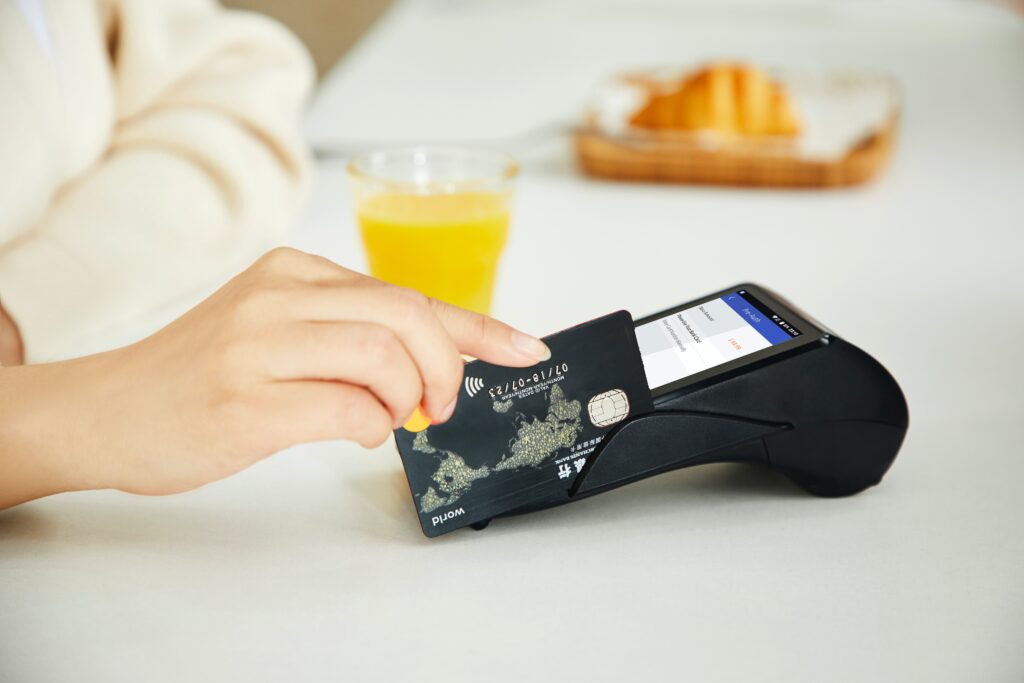Depending on how you use credit cards, they can either be a source of financial freedom or servitude. Through responsible use, the benefits far outweigh the cons, but far more people don’t pay off their credit card balance in full (66.3%), indicating widespread misuse.

4 Positives of Using Credit Cards
To help make sure you stay away from the potential downsides of this financial product, Australians can use iSelect’s credit card comparison feature to find a low-balance card.
However, if you’re interested in building more than just credit, high-balance credit cards often come with better rewards, grace periods, and insurance. Some credit card features are only available to people who own businesses or have a credit score of 700 or higher.
Here are 4 benefits of having a credit card, assuming you’re a responsible user.
1. Credit Building
Simply having a credit card will ensure your positive information appears on your credit card report every month. However, your score will fluctuate depending on how you use it. For example, paying off the balance each month will raise your credit score.
2. Convenience
A credit card is easier to conceal and carry than cash, and if you lose it, you have a chance of not being liable for unauthorized charges. Once you lose your cash, it stays lost. Credit cards also allow you to get a hotel reservation and give you access to online shopping.
3. Rewards and Insurance
Many credit cards give you access to airline miles, cash back, gas rebates, and hotel points meaning you’ll be able to subsidize the cost of future purchases or amenities. Along with rewards, credit cards can also give you access to travel insurance and theft protection.
4. Small Business Perks
If you own a business, a business credit card can have a number of features tailored to your needs. For example, you could earn rewards on telecommunication services or office supplies. You may even gain access to expense tracking tools and employee credit cards.
4 Negatives of Using Credit Cards
If you have had a credit card in the past and you weren’t able to reduce your debt, you’ve likely experienced a lot of financial stress due to the debt itself or from your falling credit score.
As your credit score starts to decrease, you lose access to the best interest rates. If it’s low enough, you may not be able to take out financial products at all. We recommend using a secured credit card to rebuild your credit, as you’ll use your own money to secure the product.
Here are 4 negatives of having a credit card if you use this financial product irresponsibly.
1. Overspending
It’s tempting to overspend when you have a credit card because you may not see the payment as tangible or “not real.” If you see your credit cards as a supplemental form of income, you may become a habitual spender who won’t be able to make monthly payments.
2. High Fees
Credit card interest rates are much higher than other loan products. On average, you’ll pay 18.24% on a new credit card, whereas mortgage and car loans range from 3-7%. What’s more, some credit cards pay exuberant fees for balance transfers, overdrafts, and cash advances.
3. Fraud
Identity fraud is a major problem across the globe. Most malicious actors will steal your credit card number as a jumping-off point. If they get ahold of your tax or personal information, your thief could cause a severe amount of financial damage.
4. Fine Print
It’s important to read every credit card contract before you sign for your own safety. For example, some companies will start you at a 0% introductory interest rate, then raise it to 50%. Other credit cards may raise your spending limit, which can negatively affect your credit score.
Published by HOLR Magazine


